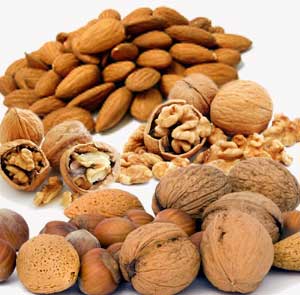1. Protein: Adding one protein to breakfast everyday could contribute to improved satiety and diet quality. Another study showed that daily consumption of a high-protein afternoon snack containing soy lead to improved appetite control, satiety, and reduced unhealthy evening snacking in adolescents. Whey, soy, pea, and egg protein all contribute to a feeling of fullness.
2. Whole Grains and Fiber: Substituting whole grain bread with refined wheat bread is linked to lower hunger, higher levels of fullness, and less desire to eat. Oats increased appetite-control hormones up to four hours after a meal, whereas rice-based foods did not.
3. Eggs: Eggs are one of the densest proteins in the non-meat category. It has been shown that eating one egg with breakast will help to reduce hunger between meal times.
4. Almonds: The healthy fats in almonds decrease hunger and improve dietary vitamin E intake. People who ate 1.5 oz. of dry-roasted, lightly salted almonds every day helped satiate their hunger without increasing body weight.
5. Pulses: Part of the legume family, pulses include dried peas, edible beans, lentils, and chickpeas. They are very high in protein and low in fat, and are proven to contribute to a feeling of fullness after consuming.
6. Saffron Extract: This type of extract is shown to have a beneficial effect on appetite, mood, and behaviors relating to snacking, which helps reduce overeating linked to habit or stress.
7. Korean Pine Nut Oil: This kind of nut has high levels of healthy, all-natural fats, which are shown to release the satiety hormone, cholecystokinin.

















Related Items
One in four women feel self-conscious about having curly hair
Cross-country cinema collaboration in full swing between India, Europe
Parents feel kids should have a phone by age 13